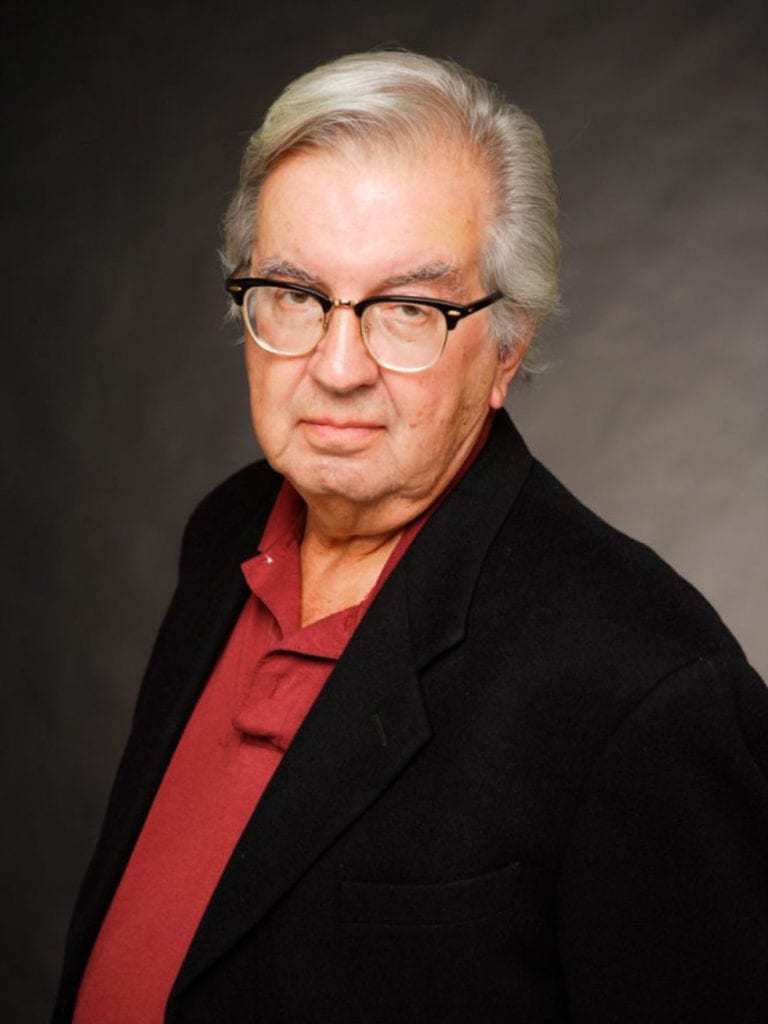Texas Novelist and Georgetown Bookseller Larry McMurtry, 84
By • April 1, 2021 0 2622

Larry McMurtry, a Pulitzer Prize-winning novelist who spurred his obsession with book-herding in Washington, D.C., died on March 25 in the Texas cowtown he immortalized. The author of “Horseman, Pass By” (reworked by Hollywood as “Hud”), “The Last Picture Show,” “Terms of Endearment” and “Lonesome Dove” was 84.
Though he was born some 25 miles north in Wichita Falls, close to the Oklahoma border, McMurtry will be forever identified with Archer City, the town nearest his family’s ranch — bare of books until an uncle, home from Korea, brought by a few.
After getting a bachelor’s at what is now the University of North Texas and a master’s at Rice, McMurtry went to Stanford as a Stegner Fellow in creative writing. His first novel, “Horseman, Pass By,” a textured, Hemingwayesque depiction of Archer City (renamed Thalia) and environs in the early 1950s, was published in 1961, when he was 25.
Latching onto the bad-seed character, screenwriting couple Irving Ravetch and Harriet Frank Jr. turned it into “Hud,” starring Paul Newman. Directed by Martin Ritt, the film received three Academy Awards: Best Actress (Patricia Neal as the cook, a Black character in the novel), Best Supporting Actor (Melvyn Douglas) and Best Black and White Cinematography (James Wong Howe).
Archer City — also the inspiration for “The Last Picture Show,” the 1966 novel and 1971 film — is a long way from Georgetown, which has more than five times the population of the dusty town on the Plains. But it was here, at M and 31st Streets, that McMurtry (with two partners) opened Booked Up, a shop selling used and rare books, in 1971. The year before, he had acquired about 1,500 volumes when the stock of venerable F Street bookstore Loudermilk’s was auctioned off. The Georgetown Booked Up lasted into the 1990s, moving across the street early on, then back across toward the end.
As historian Douglas Brinkley recalled in the New York Times: “Back in the early 1980s I was the night manager of Second Story Books in Washington, D.C. At the time I was working on my Ph.D. in American history at Georgetown University and moonlighted at this job for rent money. Almost like clockwork, 30 minutes before closing time, McMurtry would enter with leashed dogs and purchase dozens of used and rare books.”
In the early 1970s, McMurtry taught at George Mason University and American University. He initially lived with his son James in Waterford in Loudoun County, Virginia. Then, as he wrote in 2008 in Washingtonian magazine: “From 1980 on, I lived in an apartment above the shop and also, unfortunately, above the discos of M Street, which pushed out their rowdy clientele about 2 a.m. I finally got a white-noise machine, which, if set on ‘waterfall,’ more or less held its own with the revelers.”
The big-screen success of “The Last Picture Show,” directed by Peter Bogdanovich, and “Terms of Endearment,” directed by James L. Brooks — which won five Academy Awards, including Best Picture, in 1984 — made him a celebrity, also in Georgetown, where he was invited to brunches hosted by Evangeline Bruce.
In 1987, McMurtry began to consolidate his increasingly vast stock of books in Archer City at another Booked Up (at first called the Blue Pig). The herd, several hundred thousand strong — occupying multiple buildings and making the town a book lovers’ paradise — was drastically culled at an auction in 2012, so as not to burden his heirs, he said.
McMurtry received the Pulitzer Prize in 1986 for “Lonesome Dove,” his extended chronicle of a fictional cattle drive in the 1870s; it became an acclaimed TV miniseries in 1989. His later honors included a 2006 Academy Award for Best Adapted Screenplay for “Brokeback Mountain,” which he and co-author Diana Ossana based on an Annie Proulx short story, and a 2014 National Humanities Medal, conferred by President Barack Obama.
He had moved in with Ossana (who became a writing partner but apparently not a romantic partner) following a heart attack and quadruple-bypass surgery at Johns Hopkins Hospital in 1991. Married and divorced earlier, in 2011 McMurtry married Norma Faye Kesey, widow of “One Flew Over the Cuckoo’s Nest” author Ken Kesey, a Stanford classmate.
Norma Faye joined him in Ossana’s Tucson house, where McMurtry continued to write novels, biographies, screenplays (with Ossana), memoirs, essays and reviews on a manual typewriter; he also kept typewriters at other home bases. The Swiss-made Hermes 3000 machines were one of the “vanishing breeds” — like cattle ranchers and booksellers — to which McMurtry was devoted. His wife survives him, as do his son, two sisters, a brother and a grandson.
Beginning with his early novels, but especially after “Terms of Endearment,” McMurtry’s ability to credibly portray women — a rare talent among male novelists — was recognized. In “Another Life” by Michael Korda, his editor at Simon & Schuster, Korda described how readers of McMurtry’s 1970 novel “Moving On,” set in the River Oaks section of Houston, were put off by the main character’s constant crying. McMurtry, wrote Korda, “pointed out that most of the women he knew — and certainly all those on whom Patsy was based — cried pretty much all the time. There was certainly plenty for them to cry about in Texas … a place that was notoriously hard on both women and horses.”

